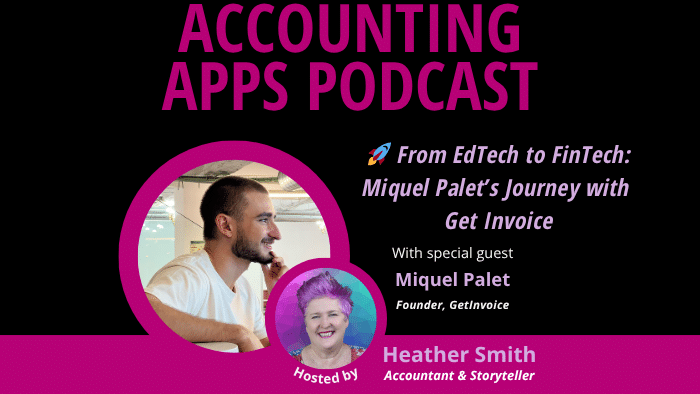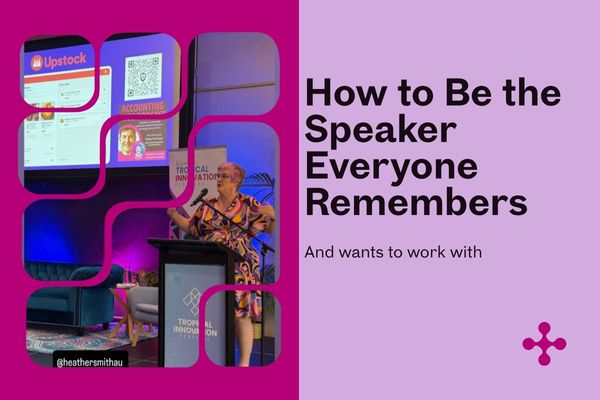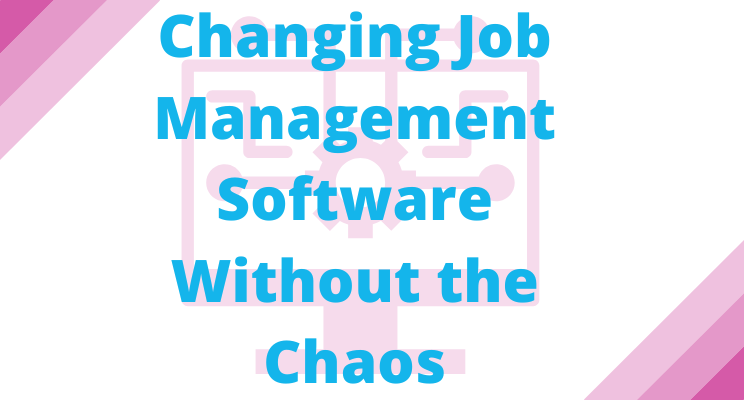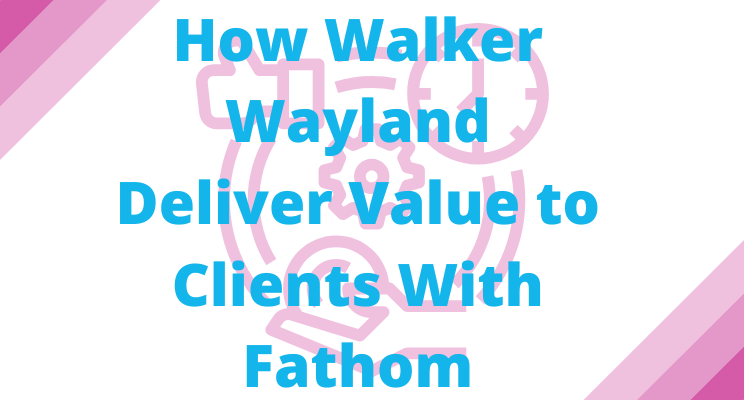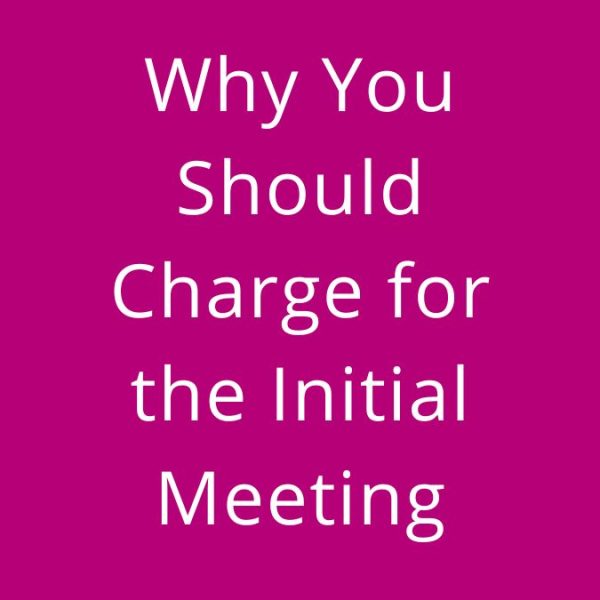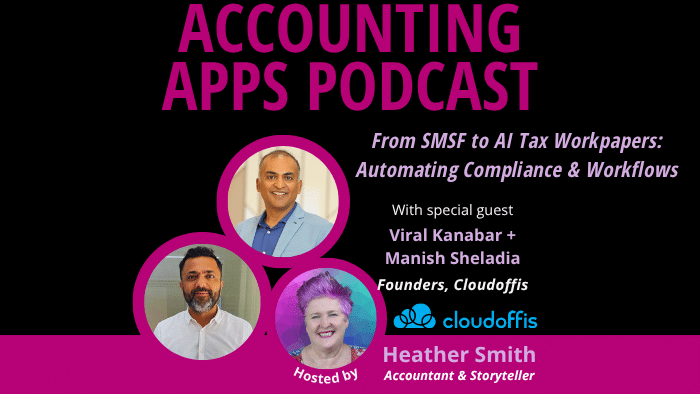“As soon as you stand still and you don’t evolve, then you jeopardise yourself, being stagnant and not growing, and the industry leaving you behind”.
“We’re not looking at getting rid of people’s roles, but we’re just evolving their lives. Because if we don’t help them all evolve as a business, then the chances are that the business is not going to be profitable”.
– Lielette Calleja, Director, BusinessDEPOT.
Dext kindly sponsored this session.
Today, I am sharing a panel session on digital transformation. This dynamic panel, Digital Transformation & AI in Accounting – The Future is Now, was held at the Accounting and Business Expo in Sydney 2025.
Joining me on the panel, in order that I spoke to them, were Lielette Calleja (BusinessDEPOT), Sabby Gill (CEO of Dext), Aleesha Bailey (RSM Australia).
We discussed the following topics: how accountants can lead digital transformation, harness AI, train teams, and shift from compliance to advisory to stay relevant in a fast-changing tech landscape.
The highlights of the conversations were:
- The role of trusted advisors in leading digital transformation.
- Challenges in adopting new tech, especially in larger firms with undertrained internal finance teams.
- Training staff and upskilling is critical, starting from the advisory end and working backwards.
- Using tools like Dext and other cloud accounting apps to streamline processes and enhance client engagement.
- The value of certifications, networking, and community learning.
- Emphasis on simplifying processes before layering tech solutions.
Due to the nature of panel sessions and the audio equipment I used, the audio is not perfect, but the content is excellent.
This panel was held at the Accounting and Business Expo in Sydney and was sponsored by Dext. Dext is a cloud-based accounting software platform that helps accountants, bookkeepers, and businesses streamline financial data collection and processing. Formerly known as Receipt Bank, Dext offers tools for automated data extraction, invoice and receipt management, and real-time financial insights.
For those looking to earn free CPE, be sure to head over to EarMarkApp and take the quiz for the podcast you are about to listen to!
Scroll down for a full transcript
This transcript has been generated and transcribed by AI
Let the audience know who you are, where you from, and what brings you to this discussion today? I’d like to start with you, Lielette.
Lielette
Good morning everyone. I’m Lielette Calleja, and I am one of the directors at BusinessDEPOT here in Sydney. So what brings me here today? Well, basically, I was a last-minute flying. I haven’t had that much time to prepare, but hopefully I should be able to nail it.
Digital adoption and digitisation is something we’ve been doing for these 10 years. So hopefully I can bring some of our experience to those of you who are new to it, or who are also struggling, because we’re all struggling with digital adoption and keeping up with all those changes. So I’m excited to be here.
Heather
You also won the Firm of the Future international awards. So I do think you have some credibility being here, Lielette.
Lielette
Won the awards in my time. But yeah, that’s because I consistently keep evolving. So it’s not about staying still. So as soon as you stand still and you don’t evolve, then you jeopardise yourself, but being stagnant and not growing, and the industry leaving you behind.
Sabby
My name is Sabby Gill. I’m the Chief Exec of Dext. I’m actually from London. But I’m here just to really learn more about what’s going on in the market, and understand what we can do for you.
Dext has been around for 14 years. We’ve been here in Sydney for at least 10 of those. The one word that you’re going to constantly hear over the next couple of days is AI. We’ve always been an AI company, a private AI company for the last 10 years here in Australia. We want to demystify whether it’s scary or mixed around AI. It’s one of those tools that if you don’t start thinking about your practice, you will be left behind. So hopefully you’ll learn more around what that entails in your practice.
Aleesha
I’m Aleesha Bailey, Director, at RSM Australia. Why I’m here is, basically, my background. I started working and learning from business people. I have experience in the traditional compliance role. I was starting to question, why at the end of the year, just tidying everything up and making significant adjustments that just completely showed a different position in the business throughout the year than at the end of the year. I started questioning, why, what we’re doing. I wanted to talk to my clients more frequently. I wanted to meet with them more frequently, and then through the cloud and the apps available to help them make their processes and finance functions by meeting more frequently. I’m hoping I can give back what I have learnt.
Heather
That’s awesome. Thank you so much. Aleesha and I forgot that it took 18 months to get accurate records. You were racing ahead of the game.
Aleesha
Yeah. This is just a huge change.
Heather
Absolutely.
Sabby, advisors play a critical role in leading digital transformation for businesses. How can accountants and bookkeepers position themselves as digital transformation leaders?
Sabby
One word to see it is as trustable parties.
Heather
That’s two words.
Sabby
To me, it’s more than just bookkeeping. Bookkeeping is a process, it’s more than a job. And think about what the outcomes of bookkeeping are giving you the most up-to-date financial data, picking it through real-time so you can make dynamic decisions.
Bookkeeping is a process that gives you that outcome, but you’ve got to know what to do with it. So much financial information sort of comes through that process. For me, it’s having a trusted advisor, somebody that you can actually trust to give them the right information, but also give them the right context of what that data actually tells you. That’s what advisory is. It’s really about trying to help businesses grow. When a business, sort of comes into fruition thinking, well actually, I just want to say businesses really do that by having the most up- to-date motion to be able to make real informed decisions there, say, 18 months.
Heather
Absolutely. Now I asked the questions out of turn. I’m going to come back to you, Sabby. I might have confused you there, sorry.
The latest KPMG report, ‘Keeping Us Up at Night’, highlights that digital transformation is now the number one priority for business leaders. Why has it moved up the agenda so rapidly? What are your thoughts on that?
Sabby
Technology is obviously the number one thing that will drive everybody, from an adoption perspective, and talk about business transformation. But businesses don’t just wake up in the morning and say, well, I need to transform. Maybe it’s because AI is a regulatory compliance issue somehow, competition and technology is probably the biggest problem, I would say. Like some of the things that Aleesha was talking about, which is, the rise of financial data and having information real time. Talked about automation and AI regulatory impressions. So all of these things are now starting to come to a head.
Now, I mean, more so than ever, competition is on the rise for the accounting industry in general. So it’s like, if you don’t keep up, it’s not a case of jobs going to go away. It’s not a case of the accounting industry or technology is going to take jobs away. It’s taking clients away under accounting practices that will come and take those clients. So it’s really important just to stay ahead of them.
Heather
Yeah, absolutely. So, Lielette, I’m going to come to you and then Aleesha. As we’ve all agreed, technology is changing rapidly.
What are the biggest challenges your clients are facing when adopting digital tools?
Lielette
I think it’s finding people who can help them. I mean they come to us first because, to use your words, Sabby, trusted advisor. But we’re trusted with so much. And honestly, you know, don’t come to me for making your business a lot more automated. Come to me and I can give you the advice, and I can share with you the tech that’s out here, but we’re slowly learning that I am not that person to do the implementation, to run it and test it.
I am that person who is going to test the workflow and the data flow coming through to the financials, but I’m not that person who’s going to put in a brand new inventory system. I mean things like Dext and stuff. Yes, absolutely. It’s our bread and butter. It’s what we do every day. But I think where they’re struggling is, who do they go to? They actually don’t know that there are people out there that do stuff, and that’s our job, is to bring that to the table and say, Hey, I think your business can be a lot more efficient. We can actually take these people here and get them working in this area.
We’re not looking at getting rid of people’s roles, but we’re just evolving their lives. Because if we don’t help them all evolve as a business, then the chances are that the business is not going to be profitable. Who wants to be in business if you’re not making money? So our role is to help them identify where those gaps are in the business. So that’s just not my role. That’s everyone on my team. So I make sure that everyone on my team is looking out for the gaps where there are inefficiencies. Clients, particularly when they’re doing bookkeeping, that is the first place you are going to show innovation. It is doing bookkeeping. doing payroll. How are they getting their times in? How are they recording their expenses? So our role there is to bring that to surface. But like I said, it doesn’t start with me. It starts from the bottom, and my job then is to bring it to the client and help them see what’s out there and what’s possible.
Heather
Yeah, I love, I love that answer that I don’t need to be doing everything.
Aleesha, what are the biggest challenges your clients are seeing in adopting digital tools?
Aleesha
I think it’s the approach that you agree to approach on every engagement. I think to get them on the side. What we do is to have a transparent conversation, and then we talk to through the benefits of technology. What we provide clients and the ultimate about the price of a good subscription that they have to implement. They know that we’re there as their advisers to support them through training, change management and explaining through a mental journey as well. We don’t have to do everything up front. We can tackle, say, one step at a time and progress targeting and pace. In my opinion, seems that there’s any five days to pay off. Only about 100 staff we need to identify the streamline that process.
Heather
Five day on payroll.
Aleesha
I heard three. So realistically, you have to pay three hours.
Heather
You just don’t have time or capacity to even think if you are spending five days on a payroll.
Aleesha
I don’t think a lot of financial teams in house have the ability and time to go to market to see what’s available. So it’s really a good opportunity to lean on your advisors or lead on the consultants that have that experience, that exposure, yeah, lot of experience.
Lielette
Can I just add to that? I agree with you, the larger the client we find that the less experience that they have in their in-house finance team to actually make these changes. So it’s quite sad, because they’ve got the budget, but they don’t have the knowledge. And the people there are just doing the same, same, because that’s all they know. They’re not here.
Heather
We need to get them here.
Sabby, looking ahead, what should firms be doing now to stay relevant in the AI-driven world?
Sabby
I think most is more one is a digital mindset. A lot of what you’ve sort of heard, whether it’s digital transformation, business transformation, all of those things, we can speed up a process, right? Trying to do it throw more humans up in making things faster just by trying to put some element of technology. But you’ve got to look at the entire process. You can’t just look at things and add poor solutions. So having that digital mindset is absolutely key. Educating, upskilling opportunities, and giving them access to all of those tools.
Sometimes people be very restrictive. I was talking to bookkeepers earlier. There was the whole thing of they believe ChatGPT is the only tool that they actually heard about. But that doesn’t necessarily give you a beginning financial information. You don’t bring customer information. It’s very generic tool, but it needs context. So one of the things that we believe is a big driver is you want to go and create tax returns. That’s okay as a process, but it doesn’t give you context at all stretches material. Just give you a very generic answer.
We need individual people who are educated, with enough skills or who come from the accounting industry to be able to then use these tools more effectively. Then, guiding clients, we can do as much as we want. As said at the moment, is clients to come to you and ask you all these questions so you probably drive them to the right place. Technology is not just a simple answer that says, well, just don’t adopt it. It’s more a case, and you’ve got to be able to tell them,Well, why you’re having to do this, and whatever the level of returns. Then, it seems like networking, just going into these types of events and just speaking to lots of people, speaking to your peers. You know, the end of the day, this is about communities.
Heather
I think to that know who to refer them to in the network. And one of the opportunities of coming to events like this is finding the people in the networks who you who you have confidence in referring them to. It’s not just the black and white name. It’s that confidence, because whatever happens, it’s a journey, and I’m a part of that journey.
Lielette and Aleesha, how can firms train staff to embrace digital tools and provide those higher-end services? How are you going about training new staff in that?
Lielette
This question is timely, because I’m actually in the middle of training new staff and a new team. I don’t start with, Here you go, stick you at the desk and do all processing. I re-engineer backwards, and I say, this is what we’re doing for this client. This is the end result that I need, that I need you to get to as well the advisory piece.
I start from the end, and then I start from the beginning, because I don’t want them to think that their role is merely data entry, processing, coding, bank, recs. They’re part of the bigger picture, and they need to understand I need to get their buy in. I also need them to understand that we use all this technology, but with that comes a duty of care, because a lot of it’s live data, and the client can log on anytime, and if we’re making errors, the client’s going to pick up on that.
There’s a couple of things I have to teach them. Everything they do has a ramification if it’s incorrect. But not to the extent that they get in trouble, but to the extent that the client is watching. It’s no more of this, Here’s the shoe box, box them, and you do your own stuff and you make the errors, and your manager picks it up. The errors are picked up by our clients before even a manager spots it. It’s really important that the training is critical, and they understand why they’re doing and if they have made a mistake, to own it and feel comfortable. So there’s a trust there as well.
Training someone today is different to what I was doing five years ago, to be perfectly honest. So it’s a lot it’s a lot more intense. I have a new trainee who said she’s still, she’s in her last year in uni, and she goes, Oh my God, I didn’t know how many systems accountants use. Welcome to our world like and we’re agnostic. So we’re using all products. We’re using MYOB, Xero, QuickBooks, and then all the add-on. So it’s really, I feel sorry for the graduates coming through, because it’s no longer just one system. We have a responsibility to take it slowly with them.
I find when I’m offshore, the team is different, their learning ability compared to the local. So local, you’ve actually got to go a bit slower. Offshore, yeah, they’re a lot more they’re just a lot quicker. And Rebecca and I had this conversation the other day. We realised that the DNA of the offshore team is different, because they will get in there and they’ll do, do, do, do. But as soon as something is out of left field, they get stuck and they don’t know what to do, whereas locally, we can think out of the box. That’s the difference I find. So you’ve got to understand your team and understand their strengths, their weaknesses. I mean, we’ll talk about cyber labour. That’s that’s another huge one as well.
Is there anything you’d like to add there? Maybe touch on providing higher-value services and how you’re exploring that.
Aleesha
What I’ve done, working at five firms, setting up a accessing provision for RSM, is providing our clients and opportunities to simplify and standardise all our systems and processes that suit the clients, and getting ourselves skilled and trained to utilise those tools. Then being able to adopt when a client is something specific. I think that has allowed the training to be fit when we onboard them, they go through a certification. Certifications that are available are incredible.
The training as well, making sure that the apps and the vendors that you’re partnering with have support, have incredible support, I think that’s critical. We’ve learned apps before and there was no support, and we thought quickly accountants got to shuttle or uninterested in that type of work purely with the application. There’s various different ways. I think.
The last thing to add would really be encouraging themselves to challenge the status quo and be involved in processes. Then thereafter to start building that process as well, and training at all levels, not just wanting to deal with the leadership level really? Every level of training we level down. And it just really strikes us, overloading data entry in a zero level. But everyone’s way from one another, and we’re all able to elevate and by doing that and creating systems and processes to gain time. Everyone’s aware that we’re working towards giving everyone more opportunity to be involved in the advisory space. We automate the mundane, and they’re not processing a payroll for five days or an account payroll for three days. They’ve got the opportunity to be involved in talking about a cash flow forecast strategy business? What’s happening in, say, the construction industry, finance and their GP margins are very open.
Heather
So Aleesha mentioned their certifications, and I’ll pop up on LinkedIn in the next couple of days, a list of all the certifications in this space that I’m aware of that you can just go and check out. As someone said, they’re like little cherries on your resume or LinkedIn profile going and grabbing their certifications.
I’d like each of you to share what steps a firm should take today to future-proof their services. Would you like to start there, Sabby?
Sabby
The most important thing is using the opportunity just to get educated on what’s really going on in the market and what’s going on with technology. The statement I made earlier is happening. There are a lot of organisations out there who are adopting this technology, and they will be on your heels and on your clients. Potentially are able to potentially offer services at a lot cheaper cost because they’re using technology to drive a lot of the cost out of business. But a lot of the costs they drive out is not people, it’s inefficiency that they’re driving out that business.
Everything I always think about is always about AI is not that tech taking jobs away. It’s there to help the existing individuals and people to elevate, as Aleesha says, take away those mundane tasks and elevate the role that they play. So I always go back to trusted advisors rather than any other model.
Heather
Thank you.
Lielette
Look at your processes, because don’t just stick apps on your business from clients without identifying your processes, your models. Because what are you trying to solve? That’s the first thing. So many times I stuck on that bottom I have thought about the implication on this act to everyone in my team, a man just looked at it from my perspective, but not from the whole organisation, especially when you’re multi services like business affairs. I need to understand what that impact is across all our teams.
Make sure you involve the right stakeholders. Don’t feel it’s just your decision. Get people in to help you delegate. Because if you want to bring in better AI tools, better robotic tools, they’re all conversations we’re having now when we try to work out, what does that look like? And bring in the relevant people. So because everyone will bring in something to that conversation that you didn’t think about.
Heather
Aleesha, that’s fine with that. We’re on time.
Aleesha
I would say, keep it simple. Dig into what are your team spending the most time doing? That is one day competitive that you can all make, invest this time in that. If you can create time and space for yourself or your team that will allow you to scale up an advisory space. If we’re too busy, we’re too distracted, we’re trying to pump too much, and we don’t have the time, then there’s a little opportunity to really have a big head to start talking about the advisory that they need for us there. Network, I think the community here is amazing. Sorry, that’s one thing I’d say. I’ve learned so much from this community. Everyone’s willing to share. Talk to them about your pain points and share.
Heather
Thank you so much, Aleesha, and thank you to everyone so much for attending this session: ‘Digital transformation and AI in accounting – The future is now’. Can I encourage all of you to when you do start moving around the theatre, head to the entrance and go and say hello to the lovely people at Dext. If you’re not using Dext, go and explore what the often options are there for you. And I’d like to encourage you to connect with all our fellow speakers on LinkedIn.





